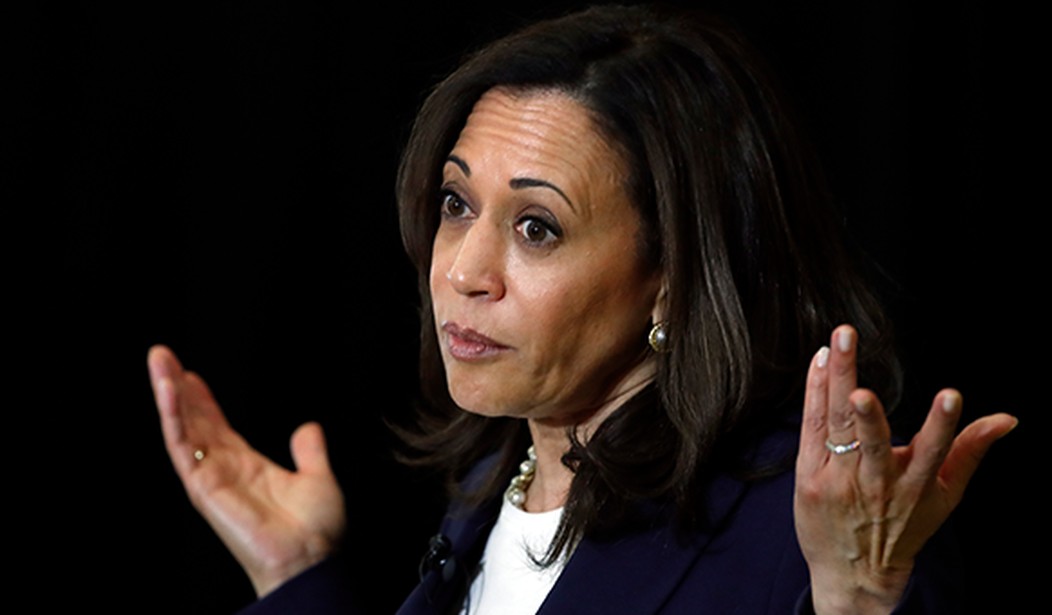Last weekend, Sen. Kamala Harris (D-CA) held a "Gun Safety Roundtable" in Seattle, Washington. Kerry Slone, the founder of We The Female, a grassroots non-profit organization designed to teach women gun safety, decided to attend the event. Her goal was simple: she wanted to have a discussion about Extreme Risk Protection Orders (ERPOs), commonly referred to as a red flag laws. Specifically, Slone wanted to have a dialogue about the negative repercussions red flag laws have on domestic violence survivors.
"On short notice, after hearing that she was going to be in Seattle, I realized that this presented a possible opportunity for civil discourse regarding Extreme Risk Protection Orders. Recently, Senator Harris has been incredibly vocal on her concerns about domestic abuse and gun violence, as well as taken an aggressive stand on gun control, so if possible, I wanted the opportunity to express what I have come to discover as the serious, unforeseen negative impacts of ERPOs and perhaps to share a different perspective," Slone told Townhall.
Harris appeared willing to hear Slone out until she heard the term "ERPOs."
"Mrs. Harris, I'm a domestic violence survivor and I'd like to talk to you about ERPOs," Slone said in the video. Harris nodded in agreement
"Okay. Let's have that chat," Slone said with a smile as she waited.
At that point, two of Harris' staffers physically blocked Slone from getting closer to ask her questions or engage with Harris any further.
Slone shared the video on social media with the hopes that Harris would eventually decide to have the conversation surrounding red flag laws.
"It was not until after it became obvious that I would not be granted the opportunity to discuss that I became frustrated by the ordeal," she explained. "Instead of just accepting the let-down, I chose to use the internet to highlight my experience with the hope of possibly being granted a follow-on opportunity."
Recommended
She wanted the 2020 presidential candidate to know of the issues surrounding red flag laws, especially when it comes to a lack of due process and varying levels of enforcement.
"While well intended, these laws are short-sighted, and do not address the unforeseen negative impact on survivors. Legislation at all level are common in that they fail to fully specify what constitutes justification for a suspension of liberty. The onus resides fully with the court system, which varies greatly across the nation regarding consistency," Slone explained. "Given the tense political environment, I fear that every request would be granted under a 'better safe than sorry' mentality, instead of actual review. This creates situations in which these laws could be purposely exploited in order to create harm or instill fear."
Although Slone didn't have the opportunity to talk to Harris directly, she said she would love to include Harris, as well as others, in a discussion about the dangers behind ERPOs.
"This goes beyond politics—-this is about communicating the potential dangers that ERPOs could result in," she said.
Following the event, Slone received an email from Harris' team, asking for feedback. She sent an email to the Harris campaign, letting them know she was frustrated by the ordeal and Harris' inability to talk about an issue that greatly impacts women.
"Senator harris claims to be a powerful advocate for women's right, however can't seem to find the time to walk away from a photo op to briefly discuss her support of unconditional [sic] ERPO laws with a domestic violence survivor," she wrote in her response.
According to Slone, the staffers blocking her from talking to Harris are a poor reflection on the Senator.
This "clearly indicated Senator Harris' complete lack of compassion or interest in the experiences and viewpoints of voters," she wrote in her email. "This behavior only reinforces the widely accepted thought that all politicians are only focused on their own personal interests."
When a politician has to have a physical barricade put between themselves and a person asking a question, you know something is wrong. Harris is the type of politician who loves to surround herself by those who tell her how great she is and how great her ideas are. She had to have staffers block Slone because she couldn't look in a domestic violence survivor's eyes and see that she's hurting the very people she claims to protect.
What happened to the "tough prosecutor" side of Harris? Or does that side only come out on the debate stage and in front of the mainstream media's cameras?

























Join the conversation as a VIP Member